
All of Me Iowa Project Aims to Close Patient-Provider Communication Gap
By: Chelsea Keenan Priest and Erin Sullivan Wagner While sexual health may be the furthest thing from anyone’s mind when receiving a cancer diagnosis, it’s a vital component of a survivor’s life once treatment ends. Subsequently, the mental, physical, and emotional consequences of treatment can greatly impact sexual health and intimacy. Patients are unsure of…
Read More
Denial
By: Anthony Damrow, Des Moines, Iowa “It’s probably just a hemorrhoid,” my primary care physician said in response to my concern that there had been some blood in my stool. “Don’t worry about it. See you next year!” Luckily, I continued to press the matter and he agreed to order a colonoscopy. I remember waking…
Read More
Even Through Uncertain Times, St. Anthony Regional Hospital’s New Cancer Center Serves as a Beacon of Hope
On December 7, 2020, St. Anthony Regional Cancer Center opened its doors to serve the patients of West Central Iowa. This building and enhancing the service line took years of planning and vision. A global pandemic couldn’t stop the plans. As we all know cancer knows no barriers, nor did the dedicated team brining this…
Read More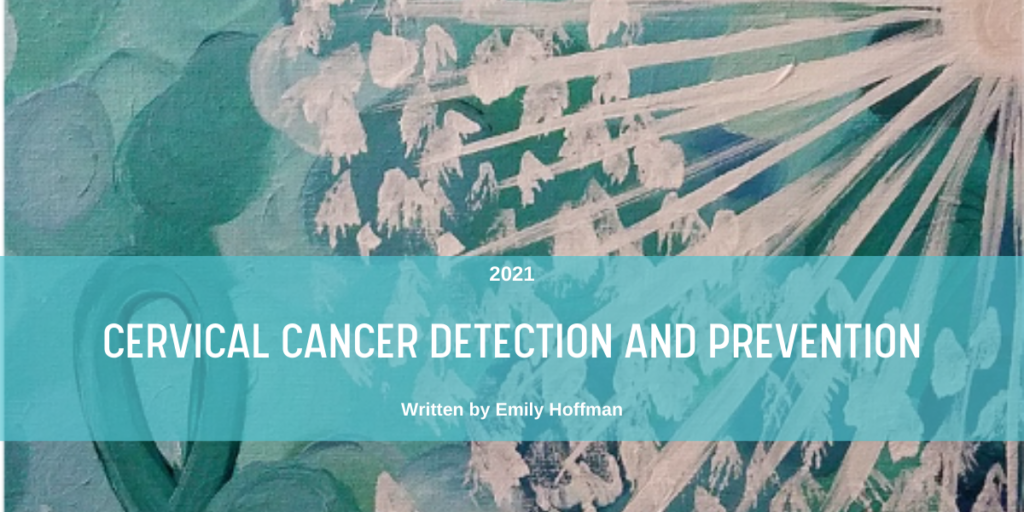
Cervical Cancer Detection and Prevention
By: Emily Hoffman “Your cervix looks different this year.” “Your cervix looks different this year,” said my primary care doctor, as she performed the pelvic exam part of my annual well-woman exam. I remember chuckling to myself, not fully grasping the severity of her comment yet. Instead, I laid on the table thinking, “How does…
Read More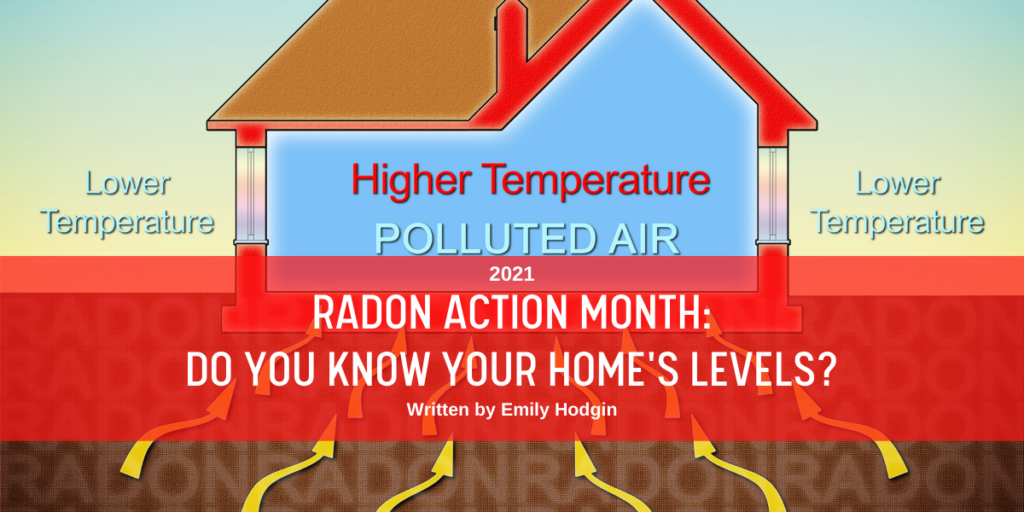
Radon Action Month: Do You Know Your Home’s Levels?
By: Emily Hodgin, Insightful Healing In 2012, my neighbor was in the process of selling her home. She sent me a text that their radon level came back at 24, which is six times the recommended level. She therefore suggested we test our radon levels. Having no idea what radon was, I consulted the internet.…
Read More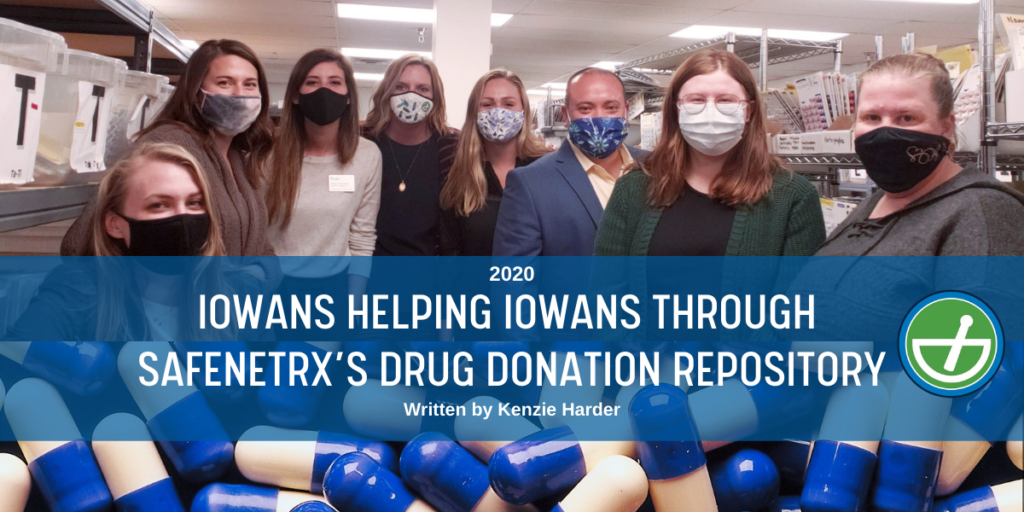
Iowans Helping Iowans Through SafeNetRx’s Drug Donation Repository
By: Kenzie Harder, PharmD Iowa is leading the way in helping uninsured and underinsured cancer patients access medications through the Drug Donation Repository at SafeNetRx. Millions of Americans lack access to affordable care, a number that continues to grow. Twenty percent of the US population is medically underserved. This includes roughly 28 million uninsured persons¹…
Read More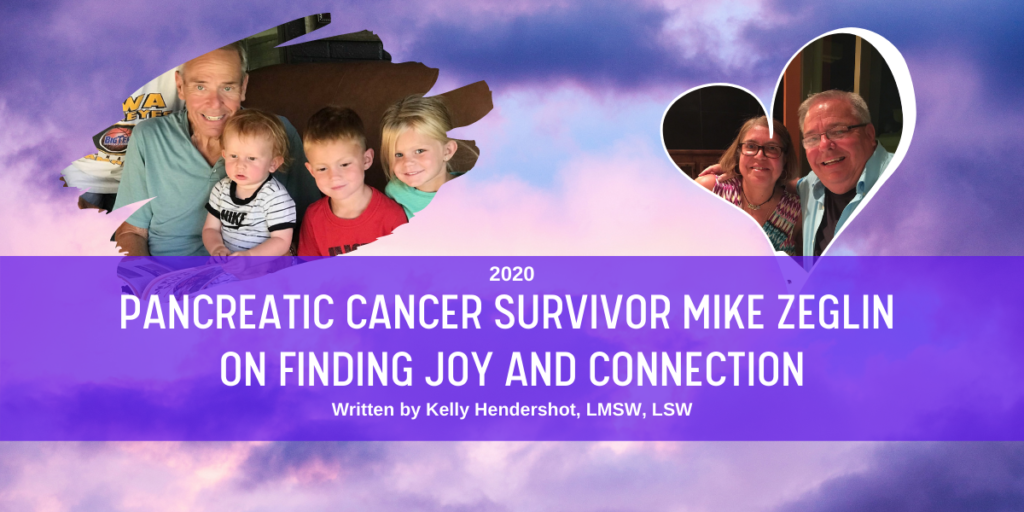
Pancreatic Cancer Survivor Mike Zeglin on Finding Joy and Connection
By: Kelly Hendershot, LMSW, LSW “Pancreatic cancer is an ugly cancer,” said Mike Zeglin, a 68-year-old man from Rock Island, Ill. “I tell myself it’s tolerable and not so bad, but I lie to myself a little bit.” Doctors first diagnosed Mike with stage b (meaning it had already spread to nearby lymph nodes) pancreatic…
Read More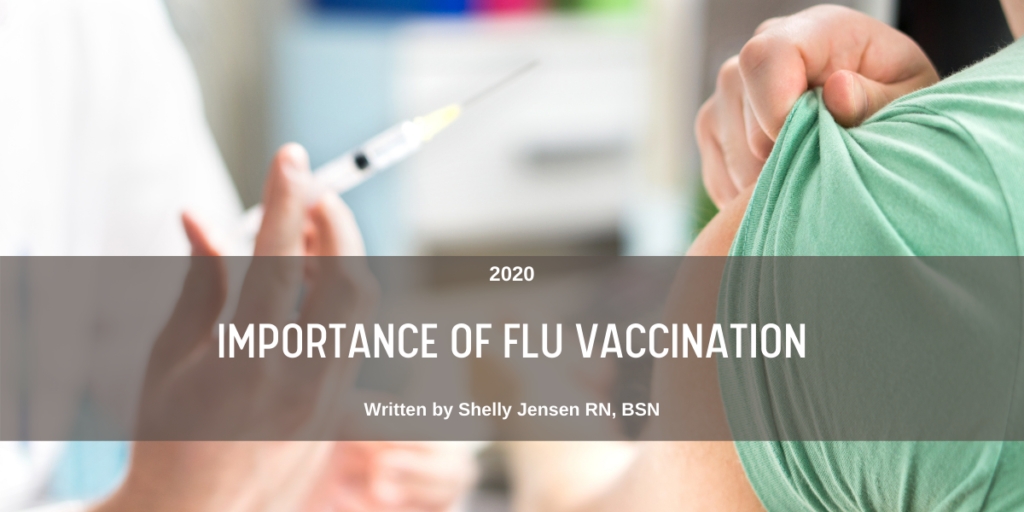
Importance of Flu Vaccination
By: Shelly Jensen RN, BSN Vaccines are one of public health’s greatest achievements. Because of routine immunizations, we are able to protect children, adults, and entire communities from the devastating and potentially life-threatening effects of vaccine preventable diseases. Vaccination can prevent certain cancers. The CDC estimates that vaccination of children born between 1994 and 2018 in the…
Read More
COVID-19 Doesn’t Stop School Radon Teams
By Julie Weisshaar, MS According to the Environmental Protection Agency (EPA), radon is the second leading cause of lung cancer among non-smokers. The EPA considers Iowa to be a high-risk zone for radon gas and recommends that all schools test for radon. Energy Association of Iowa Schools (EAIS) created the School Radon Training & Support…
Read More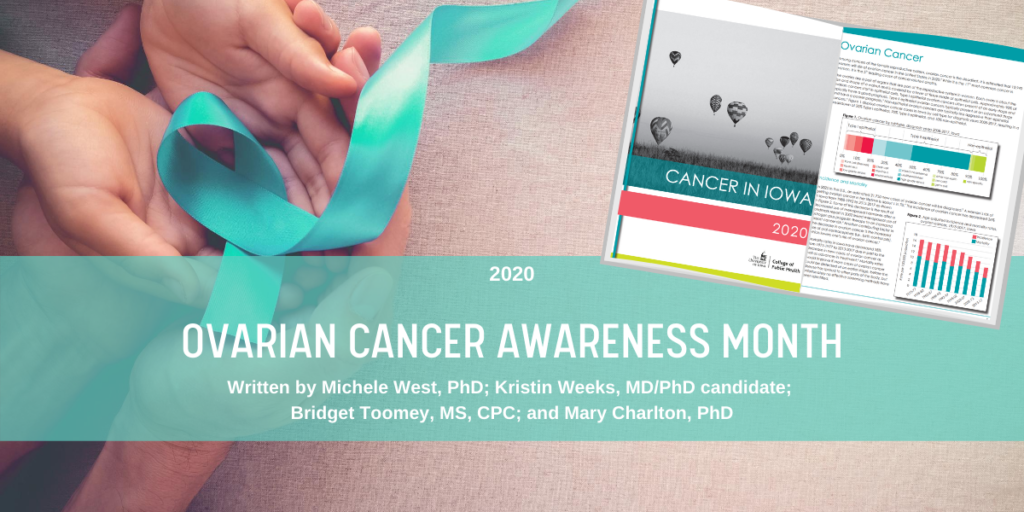
Ovarian Cancer Awareness Month
By: Michele West, PhD; Kristin Weeks, MD/PhD candidate; Bridget Toomey, MS, CPC; and Mary Charlton, PhD It’s September, which also means it is Ovarian Cancer Awareness Month! Help us spread the word about ovarian cancer by wearing teal, the ovarian cancer awareness color, throughout the month of September and by sharing the signs and symptoms…
Read More